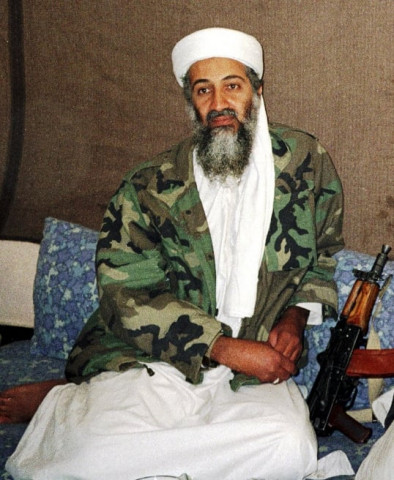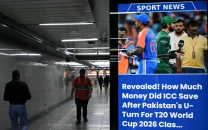Analysis: A year since bin Laden
Bin Laden is not a name, but an ideology that aims to challenge American presence and influence in the region.

Analysis: A year since bin Laden
In the year since the May 2 raid, a lot of foreign journalists have asked how Pakistan has fared after bin Laden. Twelve months, perhaps, is too little time for a fair assessment since his shadow still lurks in Abbottabad, the town where the al Qaeeda chief spent the last years of his life. Although the house, where he lived, was demolished to get rid of his memory, there are reports of a small number of people still visiting the site of the house and drinking water from a pipe that lies there, claiming it is ‘holy water.’
The fact is that Pakistan will find it hard to get rid of his memory, even though bin Laden’s family was recently put on a plane to Saudi Arabia. Emotionally and ideologically, bin Laden remains alive in the memory of many jihadis who worked with or had links with al Qaeda, including some of those considered friendly by the Pakistani state. Jaish-e-Mohammad (JeM), for instance, was established with money provided by bin Laden who had bought out Harkat-ul-Mujahideen’s interests in Karachi for JeM.
There are numerous Deobandi jihadi outfits, and the Wahabi Lashkar-e-Taiba, whose leadership has personally interacted with bin Laden and share some of his ideology, especially that pertaining to fighting American imperialism in South Asia and the Muslim World.
From the perspective of the larger political goal to push the US out of the region and challenge its military power, bin Laden’s death has changed nothing. In fact, his influence seems to have grown. It’s not just the right-wing radical people who have grown more sympathetic to bin Laden’s aforementioned cause, but also some of the liberal elements who tend to see the jihadis as the only way of getting rid of American presence from Afghanistan and the region. There is also a general belief that the May 2nd operation is more of an American myth and what happened in Abbottabad that night was just a self-created fiction of the Pentagon.
But bin Laden is not the name of a person but an ideology that aims to challenge American presence and influence in the region. The basis of this ideology is essentially anti-Americanism that seems to have proliferated not just due to May 2nd but also because of other events that happened later, such as the American attack in Salala. The numerous Deobandi and Wahabi outfits have broadened their influence and presence in the country which makes it even harder for anyone to forget the al Qaeda chief’s primary mission. There are even rumours of these outfits becoming part of the country’s political scene. While this may not happen in the next elections, such political gossip denoted growing legitimacy of jihadi outfits in Pakistan. In fact, they have smoothly grown in areas that were once known as hubs of the more plural Sufi Islam.
A year after bin Laden, Pakistan continues on its trajectory of being a hybrid theocracy – pockets of liberalism with small areas where sharia is formally implemented and larger areas where the religious law is informally applied. A year later, there is no alternative discourse that can challenge extremism from amongst us. Bin Laden still lives amongst us and will become ingrained as a myth that will then form part of this society’s history.
Published in The Express Tribune, May 2nd, 2012.


















COMMENTS
Comments are moderated and generally will be posted if they are on-topic and not abusive.
For more information, please see our Comments FAQ